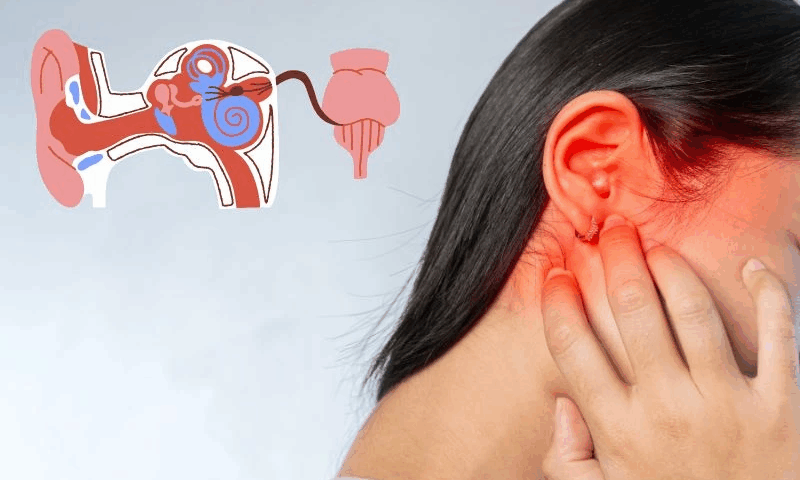
Best ENT Specialists for Sinus Problems
August 12, 2025
Best Women’s Health Tips for All Ages
August 12, 2025Ear infections are a common and often painful problem that affects people of all ages. Whether it’s a child with recurring earaches or an adult dealing with discomfort and hearing difficulties, ear infections can disrupt daily life. Fortunately, many ear infections are preventable with simple, effective habits.
In this article, we’ll explore what causes ear infections, how to recognize early signs, and most importantly, share expert ENT (Ear, Nose, and Throat) tips to prevent these infections naturally. With the right care and attention, you can protect your ears and enjoy better hearing health.
What Causes Ear Infections?
An ear infection happens when bacteria or viruses cause inflammation and fluid buildup in the ear. There are different types of ear infections:
- Otitis Media: Infection of the middle ear, common in children. It happens when fluid gets trapped behind the eardrum due to swelling or blockage.
- Otitis Externa: Also called “swimmer’s ear,” it’s an infection of the outer ear canal, often caused by water remaining in the ear after swimming.
- Inner Ear Infections: Less common but more serious, affecting balance and hearing.
Common factors that increase the risk of ear infections include:
- Colds and respiratory infections
- Allergies that cause nasal congestion
- Exposure to cigarette smoke
- Frequent water exposure (swimming or bathing)
- Poor ear hygiene or inserting objects into the ear canal
ENT Tips for Preventing Ear Infections
1. Keep Your Ears Dry
Moisture in the ear canal provides a perfect environment for bacteria and fungi to grow. After swimming or showering, gently dry your ears using a soft towel. Tilting your head to each side can help water drain out naturally.
If you’re prone to swimmer’s ear, consider using earplugs or a swim cap to keep water out while swimming.
2. Avoid Inserting Objects into the Ear
Cotton swabs, fingers, or other objects can push earwax deeper, causing blockages or damaging the delicate ear canal skin. This increases the risk of infection. Instead, clean the outer ear with a damp cloth and let earwax naturally exit the ear.
3. Manage Allergies and Nasal Congestion
Allergies can cause swelling and fluid buildup in the Eustachian tubes, the small passageways that connect the middle ear to the back of the throat. This blockage can trap fluid and lead to infections.
Using antihistamines or nasal sprays (under a doctor’s guidance) to manage allergies and congestion can reduce ear infection risk.
4. Practice Good Hand Hygiene
Many ear infections start from upper respiratory infections like colds or flu. Washing hands frequently and avoiding close contact with sick people can reduce the spread of germs.
5. Avoid Exposure to Smoke
Cigarette smoke irritates the lining of the respiratory tract and ear passages, weakening the immune response and increasing susceptibility to infections. Avoid smoking and exposure to secondhand smoke to protect your ears.
6. Breastfeed Infants When Possible
For babies, breastfeeding helps boost immunity and lowers the risk of ear infections. If bottle-feeding, avoid feeding your baby lying flat, as this position can allow fluid to enter the Eustachian tubes.
7. Stay Up to Date with Vaccinations
Vaccinations like the flu vaccine and pneumococcal vaccine help prevent infections that can lead to ear infections.
8. Use Ear Protection in Dusty or Polluted Environments
If you’re in environments with dust, allergens, or pollution, use protective gear to reduce irritation and inflammation in your ears.
9. Treat Upper Respiratory Infections Promptly
Colds and sinus infections can trigger ear infections. Seek medical advice early to manage symptoms and avoid complications.
10. Visit an ENT Specialist for Recurrent Ear Infections
If you or your child experience frequent ear infections, an ENT specialist can evaluate and suggest treatments, including possible ear tubes to drain fluid and prevent infections.
Recognizing Early Signs of Ear Infection
Early detection helps prevent complications. Watch for these symptoms:
- Ear pain or discomfort
- Hearing loss or muffled sounds
- Fluid drainage from the ear
- Fever
- Irritability or trouble sleeping (in children)
- Dizziness or balance problems
If you notice these symptoms, especially in children, consult a healthcare provider promptly.
5 FAQs About Preventing Ear Infections
1. Can ear infections heal on their own?
Many mild ear infections improve without treatment, but persistent or severe infections need medical care to avoid complications.
2. Is it safe to use ear drops to prevent infections?
Only use ear drops recommended by your doctor, especially if you have a ruptured eardrum or frequent infections.
3. How often should I clean my ears?
Cleaning the outer ear as needed with a damp cloth is enough. The ear is self-cleaning and doesn’t need frequent intervention.
4. Are children more prone to ear infections?
Yes, due to their shorter and more horizontal Eustachian tubes, making fluid drainage more difficult.
5. When should I see an ENT specialist?
If ear infections recur frequently, cause hearing loss, or don’t improve with treatment, an ENT specialist can provide specialized care.
Final Thoughts
Ear infections can be painful and frustrating, but many cases are preventable. By adopting these simple ENT tips — keeping ears dry, managing allergies, avoiding smoke, and seeking timely medical advice — you can protect your ears and enjoy better hearing health.
Taking care of your ears is a vital part of overall wellness. If you or a loved one frequently suffers from ear infections, don’t hesitate to consult an ENT professional who can guide you on the best preventive measures and treatments.



